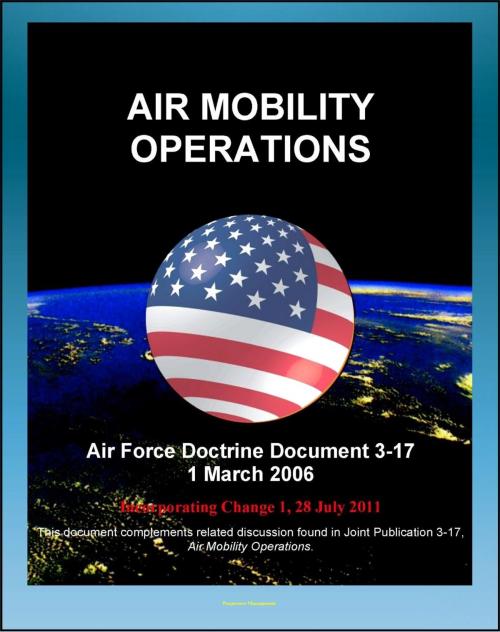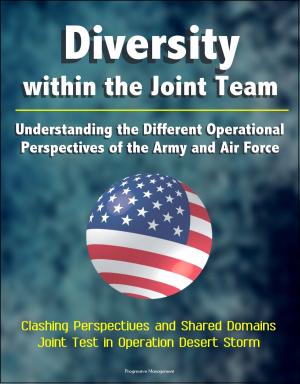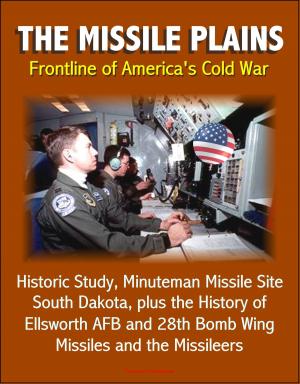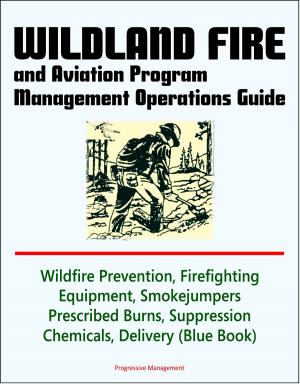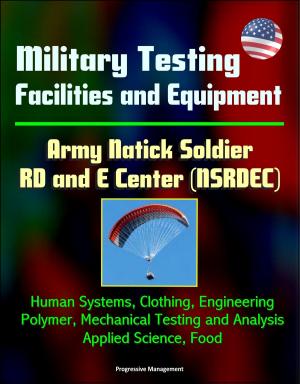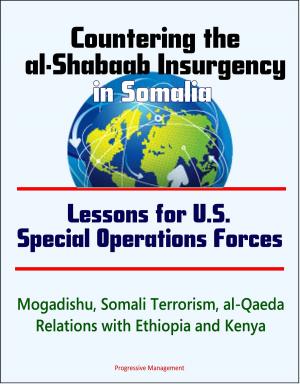Air Force Doctrine Document 3-17: Air Mobility Operations - Airlift, Air Reserve Component, Air National Guard (ANG), Air Refueling, Aeromedical Evacuation, Maximum on Ground (MOG)
Nonfiction, Science & Nature, Technology, Aeronautics & Astronautics, Social & Cultural Studies, Political Science| Author: | Progressive Management | ISBN: | 9781476352831 |
| Publisher: | Progressive Management | Publication: | April 16, 2012 |
| Imprint: | Smashwords Edition | Language: | English |
| Author: | Progressive Management |
| ISBN: | 9781476352831 |
| Publisher: | Progressive Management |
| Publication: | April 16, 2012 |
| Imprint: | Smashwords Edition |
| Language: | English |
The US Air Force provides unique warfighting capabilities that are essential to joint operations. Foremost among these capabilities is the ability to rapidly focus American combat power and lifesaving resources anywhere on the planet. Frequently, and especially in the opening stages of a conflict, air and space power may be the main manifestation of combat power we bring to bear against an adversary.
Contents: Chapter One - An Introduction To Air Mobility * Chapter Two - Organization And Command & Control (C2) * Chapter Three - Airlift * Chapter Four - Air Refueling * Chapter Five - Air Mobility Support * Chapter Six - Air Mobility Planning * Chapter Seven - Aeromedical Evacuation.
Topics covered include the Air Reserve Component (ARC), Civil Reserve Air Fleet (CRAF), Air National Guard (ANG), Airlift, Air Refueling, aeromedical evacuation, Operation VITTLES, Operation SWIFT FREEDOM, Operation JUST CAUSE, Operation ENDURING FREEDOM - HUMRO.
Of these capabilities, the Air Force provides a very singular form of power: the ability to rapidly position and sustain forces at places and times of our choosing. This pivotal capability—air mobility—is the essential ingredient for modern US expeditionary operations and supports joint force commander-desired effects to deter, dissuade, or destroy the enemy. Force projection provides for presence, mass and maneuver, surprise, security and economy. It is the sum of an impressive fleet of transport and aerial refueling aircraft, underpinned by a flexible support system, and operated by a specialized cadre of active duty Air Force, Air Force Reserve, Air National Guard, and Air Force civilian personnel. While other forms of American military power have some degree of inherent mobility, the scale of flexibility and responsiveness of the Air Force's air mobility forces is singular in the history of world conflict.
We must understand and apply our doctrine in order to succeed in current and future challenges. To do this smoothly and consistently, our planning and employment must be clearly understood and, most importantly, repeatable. To make that happen, we have captured our best practices in doctrine documents such as this one. We must learn and practice our own doctrine. We must understand what it means to be an Airman and be able to articulate what air and space power, and especially air mobility, can bring to the joint fight. Every Airman should read, discuss, and practice doctrine, and to ensure that it adapts as necessary to remain applicable in our changing environment.
The US Air Force provides unique warfighting capabilities that are essential to joint operations. Foremost among these capabilities is the ability to rapidly focus American combat power and lifesaving resources anywhere on the planet. Frequently, and especially in the opening stages of a conflict, air and space power may be the main manifestation of combat power we bring to bear against an adversary.
Contents: Chapter One - An Introduction To Air Mobility * Chapter Two - Organization And Command & Control (C2) * Chapter Three - Airlift * Chapter Four - Air Refueling * Chapter Five - Air Mobility Support * Chapter Six - Air Mobility Planning * Chapter Seven - Aeromedical Evacuation.
Topics covered include the Air Reserve Component (ARC), Civil Reserve Air Fleet (CRAF), Air National Guard (ANG), Airlift, Air Refueling, aeromedical evacuation, Operation VITTLES, Operation SWIFT FREEDOM, Operation JUST CAUSE, Operation ENDURING FREEDOM - HUMRO.
Of these capabilities, the Air Force provides a very singular form of power: the ability to rapidly position and sustain forces at places and times of our choosing. This pivotal capability—air mobility—is the essential ingredient for modern US expeditionary operations and supports joint force commander-desired effects to deter, dissuade, or destroy the enemy. Force projection provides for presence, mass and maneuver, surprise, security and economy. It is the sum of an impressive fleet of transport and aerial refueling aircraft, underpinned by a flexible support system, and operated by a specialized cadre of active duty Air Force, Air Force Reserve, Air National Guard, and Air Force civilian personnel. While other forms of American military power have some degree of inherent mobility, the scale of flexibility and responsiveness of the Air Force's air mobility forces is singular in the history of world conflict.
We must understand and apply our doctrine in order to succeed in current and future challenges. To do this smoothly and consistently, our planning and employment must be clearly understood and, most importantly, repeatable. To make that happen, we have captured our best practices in doctrine documents such as this one. We must learn and practice our own doctrine. We must understand what it means to be an Airman and be able to articulate what air and space power, and especially air mobility, can bring to the joint fight. Every Airman should read, discuss, and practice doctrine, and to ensure that it adapts as necessary to remain applicable in our changing environment.
